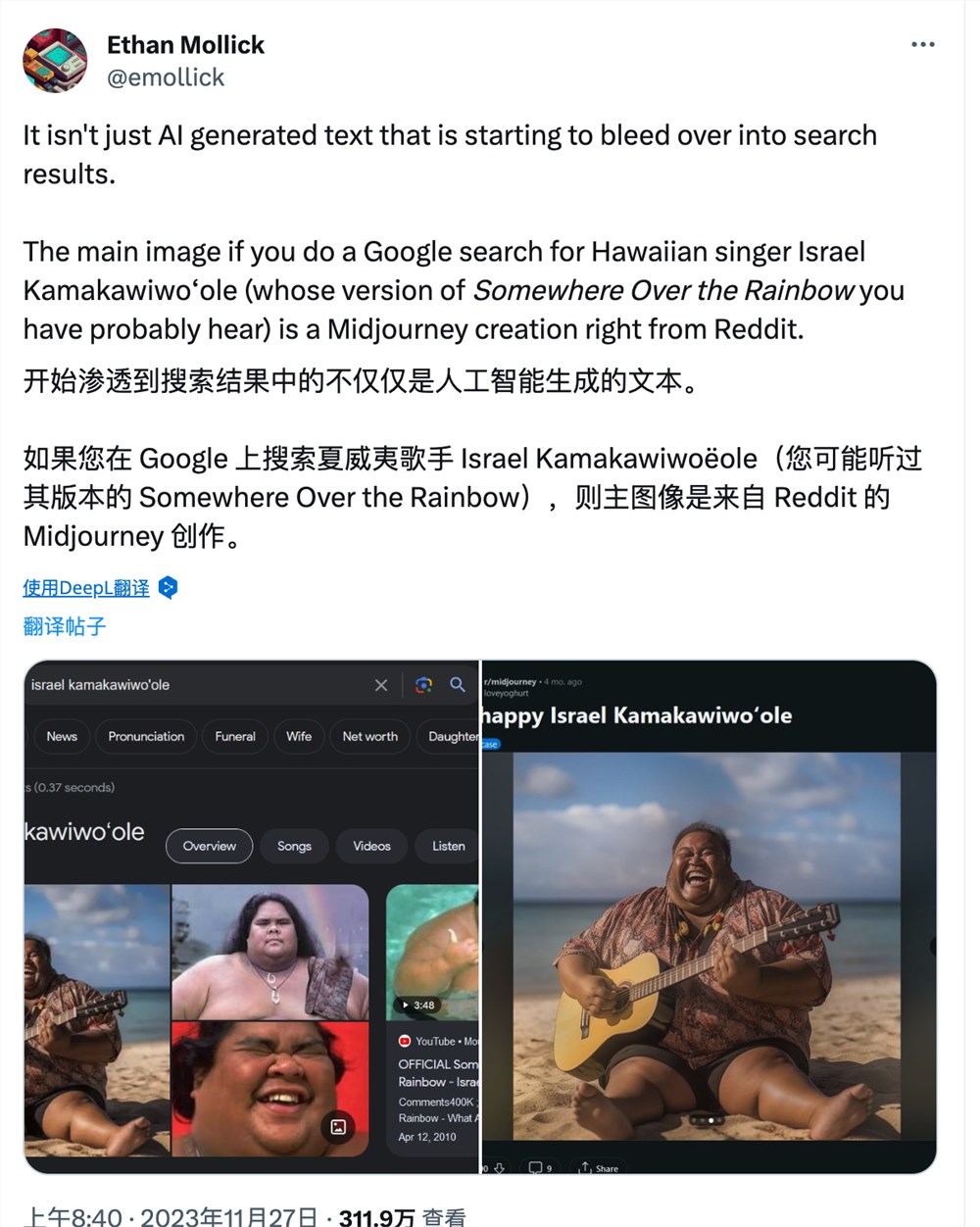Google Search Unable to Distinguish AI-Generated Images from Real Ones, Raising Concerns About Authentic Content Display
-
After listening to Israel Kamakawiwoʻole's moving rendition of 'Somewhere Over The Rainbow,' people might want to see what this large-sized singer looked like. However, conducting such a search today would show you his AI-generated version.

In another example where an AI-generated image topped Google's search rankings, netizens would see Kamakawiwoʻole's AI-generated image, sitting on a beach, holding a guitar, and laughing wildly.
Ethan Mollick, a professor at the Wharton School of the University of Pennsylvania, first discovered this AI-generated image and wrote: 'Seriously, don't believe anything you see online anymore. Faking things is too easy. You can't tell what's real or fake.'
As of today (local time Monday), these AI-generated images of Kamakawiwoʻole still appear at the top of Google search results. The images were first posted to the r/midjourney subreddit four months ago.
A concerned Reddit user commented on the original post: 'Why is this the first image of him on Google search? It's cool, but don't you think people should see a real photo when they look him up?'
Kamakawiwoʻole, who weighed 757 pounds (343 kg), is famous for his medley cover of "Somewhere Over The Rainbow/What a Wonderful World," which has appeared in multiple Hollywood films. "Somewhere Over The Rainbow" was originally sung by Judy Garland in "The Wizard of Oz."
Business Insider pointed out that the AI image is inaccurate because it depicts Kamakawiwoʻole playing a guitar, while this Hawaiian musician was actually known for playing the ukulele.
Other similar cases include searching for Johannes Vermeer (the Dutch Baroque master famous for "Girl with a Pearl Earring") and getting an AI-generated painting showing a girl with glowing earrings. When searching for Edward Hopper (the American master painter known for depicting lonely American contemporary life scenes), AI-generated results in American realist style appeared as top results.
These examples raise serious questions about how search engines can display authentic content when dealing with the current flood of AI-generated images.
